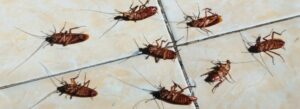Quick Answer
Peppermint oil will not get rid of rats completely, but it can act as a deterrent.
The strong scent of peppermint oil or peppermint extract may irritate a rat’s sensitive sense of smell and push them away from certain areas. However, it will not remove established nests or eliminate infestations. For long-term control, professional rat management methods such as mousetraps, proofing, rodenticides, and integrated pest management are required.
So, to the questions people type into Google:
- Does peppermint oil keep rats away?
Yes, temporarily. It may help keep them out of cupboards or away from bins. - Does peppermint oil deter rats?
Yes, in some cases — but it is not reliable enough to prevent a full infestation.
Why Peppermint Oil Is Considered a Natural Repellent
Peppermint oil has long been used as a household insect repellent. People burn a candle infused with peppermint to ward off mosquitoes, make a DIY spray bottle solution against ants, or mix peppermint extract with soap and water to repel spiders and cockroaches.
The same thinking has been applied to rodents. Peppermint belongs to the Mentha family, and the strong menthol compounds are known to irritate the respiratory systems of insects and mammals alike. Rats, with their acute sense of smell, can find the smell overwhelming.
But is this science or a myth?
How Peppermint Extract Works
There’s a difference between peppermint “flavouring” and true peppermint extract or essential oil. Extracts and oils contain concentrated menthol — the compound that provides the sharp, cooling smell.
- Peppermint extract on cotton balls: Place near entry points, basements, or pantries.
- Diluted peppermint extract in a spray bottle: Spritz around skirting boards, bins, and sheds.
- Peppermint soap solution: Mix soap flakes, water, and peppermint extract to create a cleaner with both disinfecting and deterrent properties.
- Peppermint candles: Burn in rooms or outbuildings to mask odours.
These methods may discourage pests — not just rats, but also bed bugs, spiders, moths, and even the occasional fly.
Peppermint Oil vs Other Natural Repellents
Homeowners often combine peppermint with other strong scents to boost its effect:
- Citronella oil: Often used in garden candles to repel mosquitoes and flies.
- Vinegar: Strong acidic odour, often mixed into sprays.
- Black pepper: Sprinkled in cupboards as a dry deterrent.
- Ammonia: Mimics predator urine, but with a harsh, unpleasant smell.
- Soap-based sprays: Disrupt scent trails of insects and leave a strong fragrance.
While these remedies work as insect repellents, their impact on rodents is weaker. Rats are larger, more determined, and driven by food, not just by smell.
The Problem With Relying Only on Peppermint
The myth that peppermint alone can solve a rat infestation is dangerous because it delays effective treatment. If rats are nesting under decking, in a shed, or burrowed into a basement, the colony will not abandon its food source because of peppermint.
Rats are resilient:
- They’ll tolerate the smell if food and water are close.
- They adapt quickly to repellents.
- They chew through plastic, wood, or even soft concrete to access food.
So while peppermint extract can help as a deterrent, it is not a cure.
DIY Peppermint Rat Repellent Recipes
If you want to try peppermint for peace of mind, here are DIY methods:
Cotton Ball Method
- Soak cotton balls in peppermint extract.
- Place near rat runs or gaps.
- Replace every 2–3 days.
Peppermint Spray Bottle Mix
- Mix 10–15 drops of peppermint oil or extract with water and a little soap.
- Shake in a bottle and spray around skirting boards, bins, sheds, or garden fences.
- Acts as both a cleaner and scent deterrent.
Peppermint Candle Burn
- Burn a peppermint candle in sheds, garages, or outdoor seating areas.
- Helps deter rats and also doubles as an insect repellent for flies and mosquitoes.
These solutions may repel rodents short-term but won’t kill or remove them.
Peppermint and Other Pests
Peppermint extract isn’t just used for rats — it’s marketed as a deterrent for many pests:
- Bed bugs: The smell may disrupt them temporarily, but it won’t kill eggs.
- Spiders: Strong menthol odour may drive them from corners.
- Moths: Can mask smells that attract textile pests.
- Cockroaches: Sensitive to strong-smelling sprays.
- Flies and mosquitoes: Peppermint combined with citronella oil is common in repellents.
This crossover explains why people assume it will work as a rodent solution — but the science is much weaker for rats compared to insects.
Mousetraps vs Peppermint
If speed is your goal, peppermint isn’t enough. Mousetraps and rat traps remain faster, more effective methods:
- Snap traps: Quick kill, baited with chocolate, peanut butter, or dried fruit.
- Electric traps: Deliver a humane, instant shock.
- Adhesive mousetrap boards: Used indoors but controversial.
- Live traps: Catch-and-release, though not recommended for rats.
Compared to peppermint oil, traps directly reduce the population.
Peppermint vs Rentokil Initial (Branded Professional Control)
Large pest control brands like Rentokil Initial have tested natural remedies like peppermint, citronella oil, and soap sprays. Their findings match what local pest control companies report: peppermint can act as a deterrent, but it won’t “get rid” of rodents.
That’s why Rentokil Initial and BPCA-approved companies always combine professional solutions — baiting, proofing, rodenticide, and trapping — rather than relying on peppermint alone.
Why Professional Pest Control Is Faster
Professionals don’t dismiss peppermint — they may use it as a complementary tool — but for fast, reliable results, they rely on:
- Integrated pest management (IPM).
- Proofing entry points with steel plates, steel wool, caulk, and mesh.
- Mousetrap placement for immediate results.
- Rodenticides in tamper-proof boxes.
- Dry ice fumigation in severe garden infestations.
This multi-layered approach works far better than any peppermint solution.
Safety, Health, and Personal Protection
While peppermint oil is safe in small doses, concentrated peppermint extract can irritate skin and eyes. Always handle with care.
When dealing with rats:
- Wear personal protective equipment (gloves, mask).
- Use disinfectant or soap solutions after handling traps or droppings.
- Never pour oils directly onto soil or plants — it harms local wildlife.
Ignoring infestations carries bigger risks: rats spread disease, contaminate food, and damage homes.
Common Mistakes People Make
- Thinking peppermint oil will “get rid” of rats.
- Using one or two candles and assuming the job is done.
- Forgetting to refresh cotton balls or sprays — the smell fades fast.
- Ignoring entry points (rats squeeze through holes less than an inch wide).
- Believing online “miracle” remedies without evidence.
FAQs
Does peppermint oil keep rats away?
Yes, it may help deter them from small areas.
Does peppermint oil deter rats permanently?
No, rats adapt quickly and return once the scent fades.
How do I use peppermint oil at home?
Try cotton balls, a spray bottle, or peppermint candles — but combine with proofing and trapping.
Is peppermint better than a mousetrap?
No. Peppermint is a deterrent; traps actively reduce rat numbers.
Should I call a professional?
Yes, if you see repeated signs of activity, burrows, or droppings.
Conclusion: The Truth About Peppermint Oil
So, will peppermint oil get rid of rats?
No — it won’t.
Peppermint extract can deter rats temporarily and works as part of a prevention plan, but it’s not a cure. Think of it as a natural insect repellent rather than a rodent extermination tool.
If you’re dealing with a serious infestation, skip the myths and candles — and call a professional local pest control company. At Innovation Pest Control, we provide fast, proven solutions across Kent that get results.
👉 Call 07743 958 655 for emergency rat control today.







